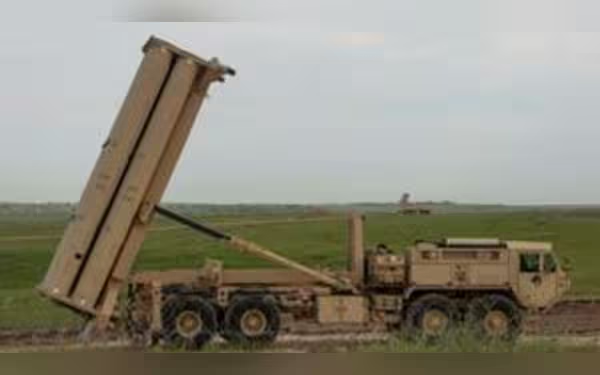Thursday, November 7, 2024 08:37 AM
Iran Denounces US THAAD Delivery to Israel as Psychological Warfare
- Iran labels US THAAD delivery as psychological warfare.
- Israeli threats follow Iran's missile strikes on targets.
- Escalating tensions raise concerns of an arms race.
 Image Credits: menafn
Image Credits: menafnIran's Defense Minister criticizes US THAAD delivery to Israel, calling it psychological warfare amid escalating military tensions.
In recent developments, the Iranian Defense Minister, Aziz Nasirzadeh, has publicly dismissed the United States' decision to deliver the Terminal High Altitude Area Defense (THAAD) anti-ballistic missile system to Israel. He characterized this move as part of the "enemy's psychological warfare." This statement was made during a press conference held on the sidelines of a weekly cabinet meeting in Tehran.
Nasirzadeh emphasized that the THAAD system is not a new technology, stating, "The THAAD is an anti-ballistic missile system. It is not a new thing and has existed before." He further elaborated that such actions by the United States are merely tactics aimed at instilling fear and confusion, asserting, "We assess such actions as being in line with the enemy's psychological warfare. There is no particular problem in that regard." This perspective reflects Iran's ongoing tensions with Israel and the United States, particularly in light of recent military threats.
The backdrop to this situation is significant. The United States announced its decision to send the THAAD system to Israel, along with soldiers to operate it, just days after Israel threatened military action against Iran. This threat was a direct response to Iran's missile strikes on Israeli targets earlier this month, where approximately 180 missiles were launched. Iran justified these strikes as retaliation for the assassinations of leaders from regional resistance groups and Israel's military actions against armed groups in Lebanon and Palestine.
In response to Iran's missile attacks, Israeli Prime Minister Benjamin Netanyahu warned that Iran had made a "grave mistake" and vowed to retaliate. This escalating cycle of threats and military posturing highlights the fragile state of relations in the region, where both sides are on high alert.
As the situation unfolds, it is crucial to consider the broader implications of such military developments. The introduction of advanced missile defense systems like THAAD into the region not only heightens tensions but also raises questions about the potential for an arms race. Both Iran and Israel are likely to continue their military preparations, which could lead to further instability. Understanding these dynamics is essential for grasping the complexities of Middle Eastern geopolitics and the ongoing conflict between these nations.













